The Coronation week had a lasting impact for the UK and The Bahamas. Namely that, amongst the pageantry and protocol, the attendance of nearly 500 world leaders in London for the Coronation offered a unique moment for international diplomacy and strengthening UK-Bahamas bilateral ties.
For the UK, the Royal Family and senior ministers had several hundred meetings covering 185 countries (including The Bahamas!) in the days surrounding the Coronation: it took a substantial amount of preparation to ensure the right person happened to bump into the right Minister, just at the right time, and just happened to mention the right thing that we wanted to progress, but no opportunity was missed. In addition, the only formal thematic event organised was dedicated to small island states (SIDS), quite purposefully so we could continue HM The King's and the UK's priorities for helping those wrestling with climate change, in particular: it was a deliberate signal of our highest national priorities. And British embassies and high commissions around the world are now busy following up on this diplomacy done in London.
For The Bahamas, the Coronation also offered opportunities for diplomacy and negotiations: Prime Minister Davis attended four exclusive events on Friday, including with Commonwealth leaders at Lancaster House, a reception with world leaders at Buckingham Palace, and a lunch with The King at Buckingham Palace, where they sat next to one another and talked at length.
The Governor General, similarly, sat next to Britain's Prime Minster at Windsor Castle and I'm certain would have discussed their shared passion for supporting youth. In the hours before the Coronation I observed Prime Minister Davis at Westminster Abbey speaking openly and at length with Prime Ministers of Canada and Australia, as well as Grenada and Antigua, all without their minders, and with time to talk whilst waiting for necessary protocol to have its way; the British Foreign Secretary soon joined too, and there followed in-depth conversations about defence, trade, climate change, and on-going climate science research in The Bahamas covering all corners of the world.
And, after the Coronation too, world leaders gathered again for a reception with British Cabinet Ministers; the moment, energy, and positive atmosphere meant leaders were relaxed to stay and talk - more business was done even with the most surprising pairs: I was grateful that The King of Jordan spoke to me for as long as he did!
Overall, the Coronation allowed time and space for world leaders to come together. It created a moment for diplomacy to take place at a time when it is needed most.
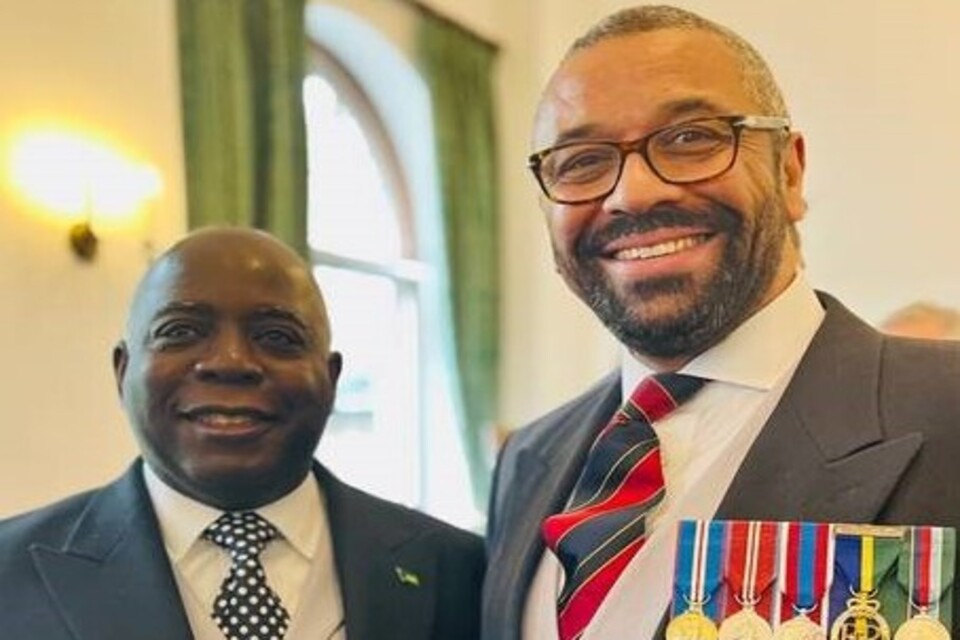
Photo - Prime Minster Davis speaking with British Foreign Secretary James Cleverley in a pause before the Coronation.
And, away from the Coronation, the week also demonstrated the breadth, depth, and strength of the modern British-Bahamian relationship: Prime Minister Davis and his delegation travelled early to London to allow sufficient time to undertake an important series of events.
At The National Archives I was proud to show the Prime Minister papers and maps held in British archives that relate to the history of The Bahamas, including about Pindling's successful petition of Her Majesty the Late Queen for Black Majority Rule in 1967, or the original hand-written Court documents from 1832 of the trial of Black Dick from Cat Island - an important moment in the journey to emancipation in 1834 (I am hoping to get some of these digitised to allow a wider audience to see them too).
At Andrew Lloyd Webber's 'Arts Ed' school, the Prime Minister discussed how the innovative education model might work for The Bahamas as he looks to strengthen the Orange (Arts) Economy. At the House of Lords, the Prime Minister gave a speech to 200 Lords, Ladies, Ministers, and Diplomats, about his future vision for 'the greatest small nation in the world' (few disagreed!). In meetings with the Lord Mayor of London - the UK's representative of The City - he pressed on financial services, including hurricane insurance, unequal implementation of financial rules, and access to British correspondent banks.
At the end of a roundtable event with the Commonwealth Economic Institute (CWEIC) the Prime Minister signed an MOU that brings with it support on climate change and investment. And at a trade and investment conference, the Prime Minister spoke of the opportunities for British companies to invest in infrastructure, tourism, health system, or logistics (the British business community were also very pleased to see and hear from the honourable Leader of the Opposition Michael Pintard - a demonstration of the strength and stability of Bahamian democracy, a key factor in investment decisions, as is the overlapping legal system).
Overall, the week covered every key element of what the UK and The Bahamas cares about and, for the UK, it catapulted forward our relationships and objectives with one of our closest and most important partners in the Caribbean.
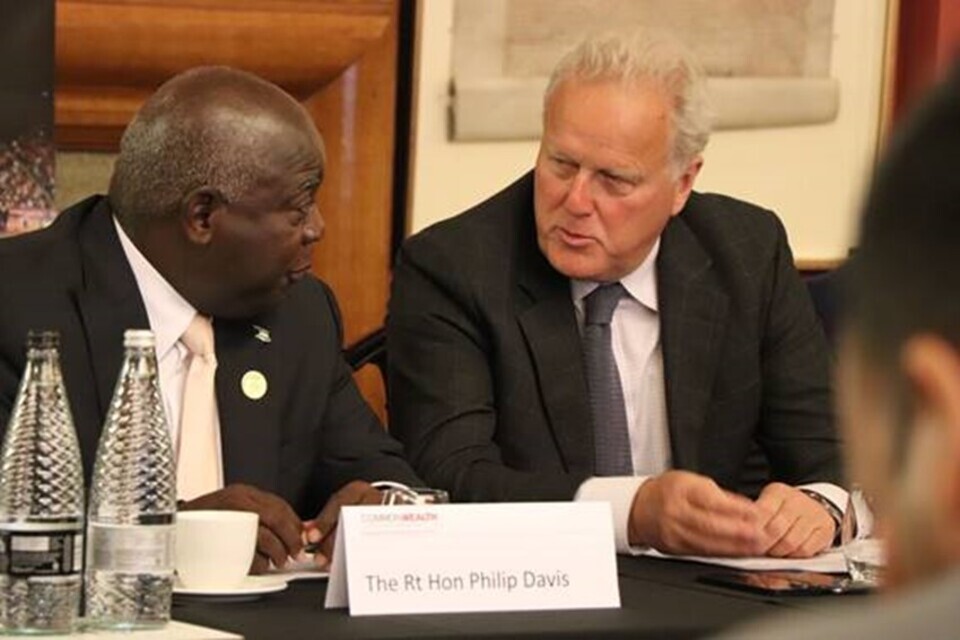
Photo: Prime Minister Davis with Lord Marland of CWEIC
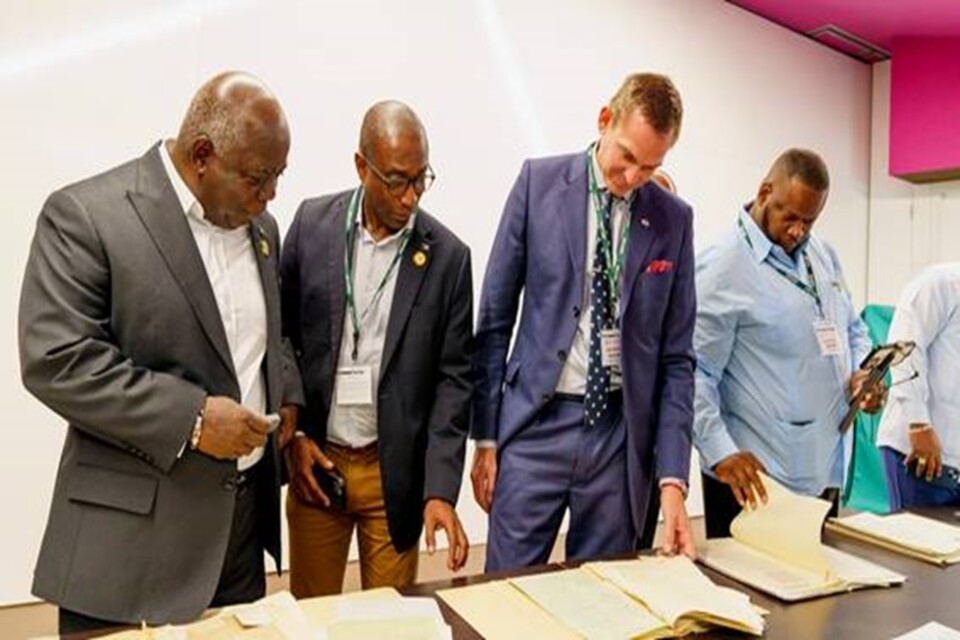
Photo: the Prime Minister at the National Archives
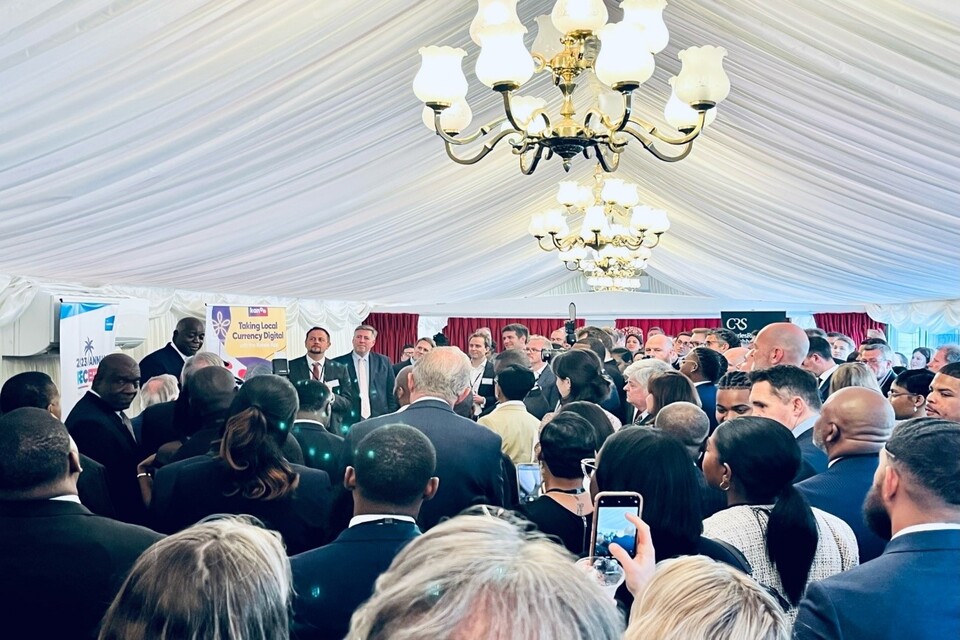
Photo: The Prime Minister makes remarks in a packed riverside room, at the House of Lords
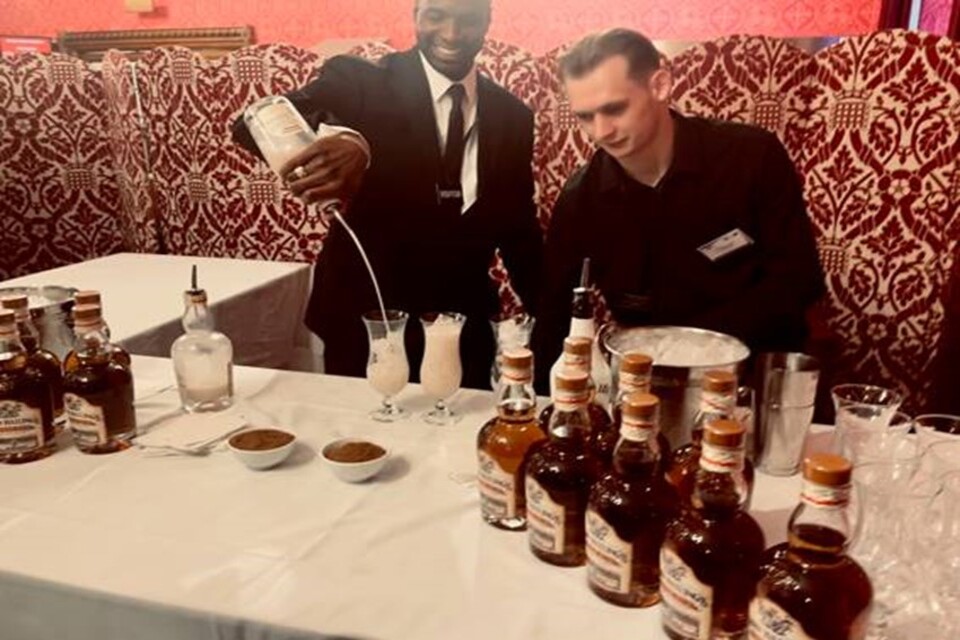
Photo: John Watling's rum being served at the House of Lords. The British High Commission is supporting Bahamian exports to the UK.
It was a busy week. And an excellent opportunity to meet old friends and make new. In that spirit, I took great pleasure in seeing my friend, His Excellency Andy Gomez, take up his position in London as the new Bahamian High Commissioner. He kindly invited me to join his event for Bahamians living in the UK, and I am excited about the years ahead as we both strive to bring The Bahamas and Britain ever closer together, as the Coronation has done.
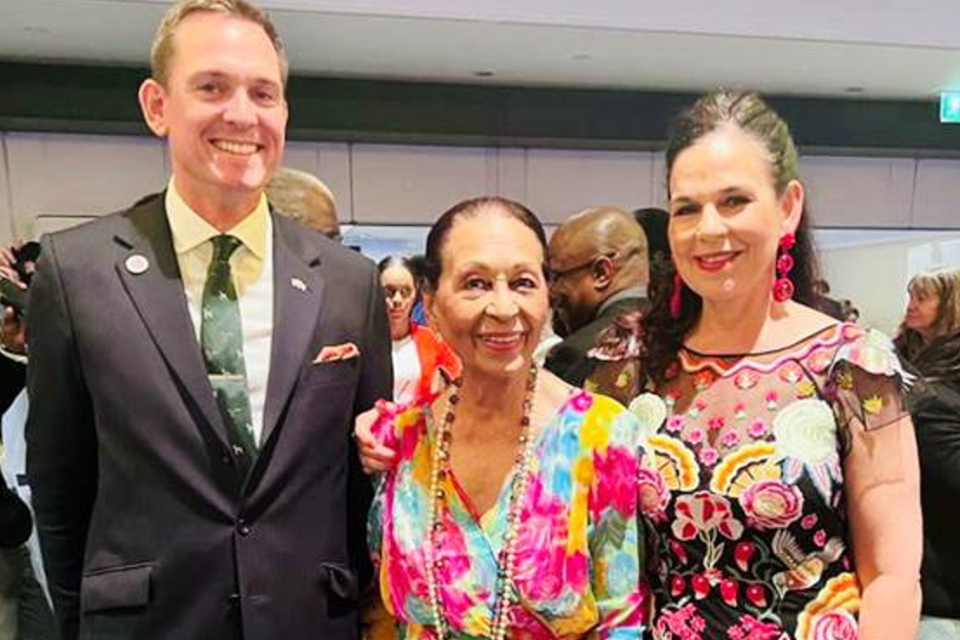
Photo: With Dame Marguerite Pindling and Lynn Parotti, at the diaspora reception hosted by HE Andy Gomez, Bahamian High Commissioner to the UK.
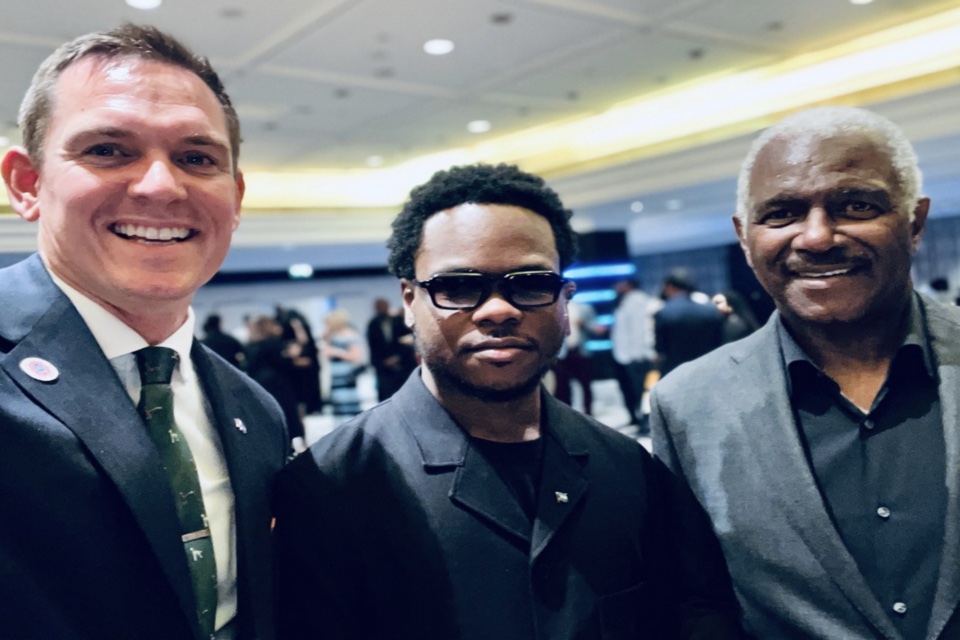
;;
Photo: With HE Andy Gomez and Tray, a Bahamian fashion student in London
There will be more important moment for The Bahamas and the UK in the year ahead. I am pleased that Kanoo announced their investment into the UK, and that British businesses are already taking advantage of the reopened British High Commission in The Bahamas to seek new investment opportunities here as well: the British company building Freeport airport and its sea defences, and the British company that will operate it, and the British financing that will enable it, are all down payments in what will be a flourishing season of investment.
We are already active in supporting Bahamian exports to Britain - initiatives such as with the spirits industry or Harrods for example - and we are excited to organise a virtual speed-dating for British and Bahamian companies on 7th June, and a major trade mission of British companies to Nassau and Freeport in early October.
As British companies do around the world, their investments will bring with them Bahamian jobs, sustainable energy commitments, ethical business practices, and long-term investment in local communities. It is one of the things that sets us apart from other international investors.
Beyond business: education remains a top priority, and we are gearing up to announce further new scholarships, striving to foster new institutional partnerships, and promote easier access to British schools and universities for those who wish to consider them (they are the best in the world!). And amplification of cultural cornerstones, such as sailing, food, and junkanoo will continue to grow, although I promise no more dad-dancing from this British High Commissioner!
Building international relationships is a marathon not a sprint, but I am excited by the huge potential even just for the next few years ahead: the week of the Coronation - and the diplomacy and activity that surrounded it - demonstrated the huge breadth and depth of our partnership and friendship. Long may it continue.
Tom Hartley, UK High Commissioner Nassau






